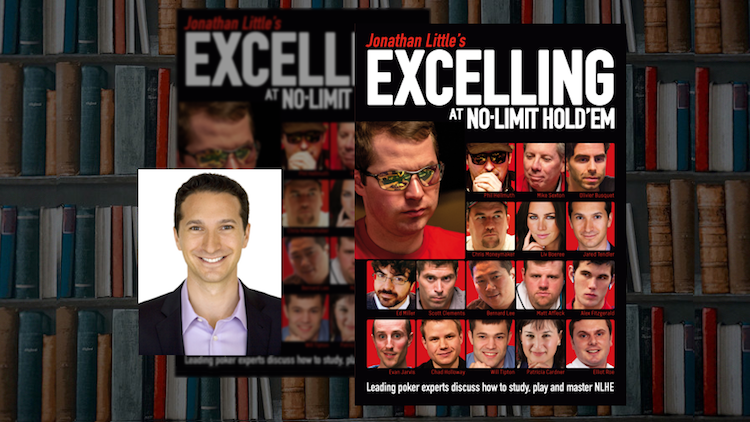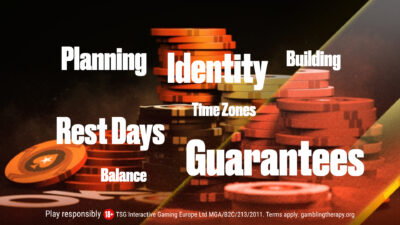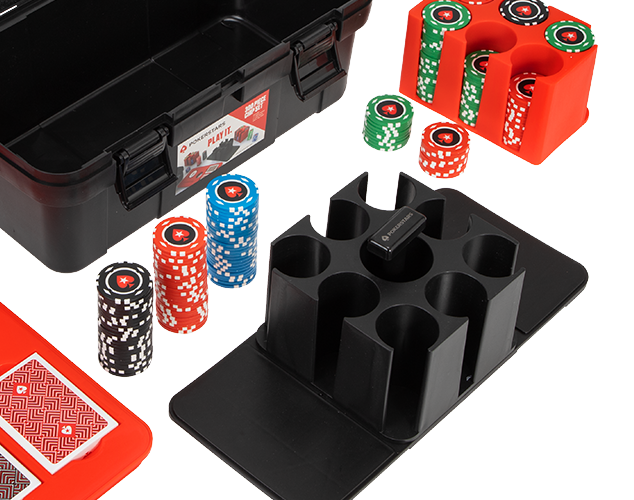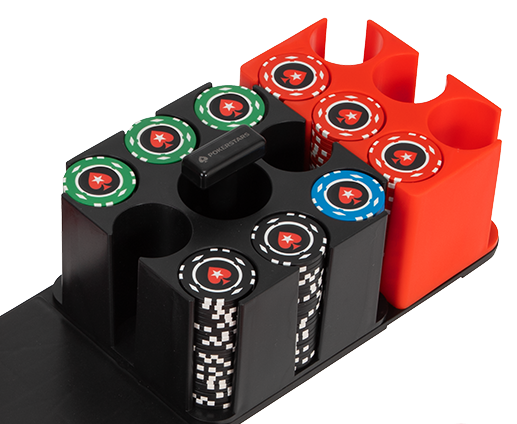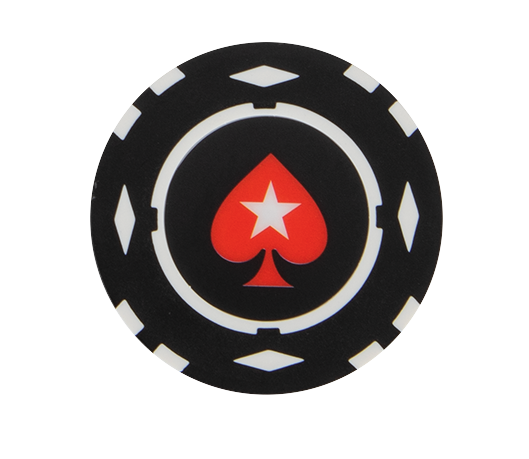One of the more popular recent titles in the D&B Poker catalogue has been Jonathan Little’s Excelling at No-Limit Hold’em.
The book is kind of a modern version of Doyle Brunson‘s Super/System in the way it compiles contributions on poker strategy from numerous authors.
For the book Jonathan Little joins 17 different experts in various aspects of no-limit hold’em to provide a wide range of strategy advice. Phil Hellmuth, Liv Boeree, Chris Moneymaker, Mike Sexton, Alexander Fitzgerald, Olivier Busquet and Ed Miller are among the stellar line-up of contributors.
Part 1 of the book focuses on no-limit hold’em fundamentals, satellite play, lower-buy in events, analyzing tells, and moving up in stakes. The contributors to Part 2 then provide more technical advice with sections on range analysis, game theory optimal play, short stack strategies, value betting, and final table play. The final Part 3 then focuses on issues like mental toughness, psychology, and understanding tilt.
It is from that last part we are sharing an excerpt below that comes from poker coach Jared Tendler‘s chapter, “A Proven Strategy for Eliminating Tilt.” In this section, Tendler identifies five different “tilt myths” that tend to steer poker players in the wrong direction when trying to minimize or avoid tilt.
from “A Proven Strategy for Eliminating Tilt” by Jared Tendler
For you to have a chance at solving your tilt problems you need good information about tilt. Only when you understand tilt and the nature of anger can you begin to correct the underlying flaws that cause it. Otherwise, your efforts will only produce short-term progress that will eventually have you tilting because you’re still angry! Let’s dispel some popular myths about tilt and jumpstart your efforts to kill this problem for good. Here are the ones that are most common and damaging.
Tilt Myths
Quitting is a cure
Quitting is a way to protect yourself from the damage that tilt can inflict on your game, and it’s a wise strategy to use until you learn to control it. The problem is that some players get so good at quitting at the first sign of tilt that, not surprisingly, they stop tilting. You can’t tilt if you aren’t playing. Over time, however, they forget they even have a tilt problem and guess what happens? They develop a motivational problem. Now they will only play if they feel perfect, so they aren’t playing enough. You may think this works as a way to cure tilt but, in the long term, there is a massive opportunity cost. Rather than saving yourself money by not playing on tilt, think of all the money you could be earning if you actually eliminate tilt for good.
Anger is inherently bad
Have you ever been annoyed and then used this feeling as fuel to play better than you’ve ever played? Very often players will make a few mistakes early in a session because their poker brain isn’t in gear, and getting annoyed at those mistakes is the kick in the butt they need to wake up and play great. Michael Jordan was famous for using anger toward his opponents to get himself energized and focused… and we know how that turned out. Of course, anger doesn’t always create this kind of fuel to perform at a high level and I don’t believe it’s an ideal source either. However, you can’t say that feeling angry is a bad thing because that’s simply not true. The key is recognizing and understanding when anger has become a problem and consequently solving the root cause of it.
Absolute control of tilt
Players often get annoyed that they’re tilting — the tilt of tilt. They’re angry because they expect to always be able to be in control of tilt. This especially happens to players after they’ve made progress with their tilt. As you’ll soon learn, you need mental energy in order to control tilt. If you’re lacking mental energy because you’re tired or worn down, you cannot expect to be able to control tilt. This reality can’t be changed because it’s based on how the brain functions. Keeping your expectations in line with reality will ensure that you can avoid putting yourself in a situation where tilt becomes likely. In other words, it’ll keep you from gambling with your mental game.
Everyone tilts
Players who tilt often make the excuse that “everyone does it” as a way of making themselves feel less bad about tilting. If everyone tilts then it’s really not that much of a problem and they don’t need to worry about doing anything about it. If you find yourself making that excuse, or you hear someone that you want to help saying it, call yourself or them on it. One of my most successful clients told me that she had received advice from a well-known coach who said not to worry about tilt because everyone did it. That was until she started working with me. Over the next several years she quietly became one of the most profitable heads-up players in the world due in part to the fact that she no longer tilted.
“The fresh start”
After a really bad day of tilting at the tables, players will often start a new day thinking “today is a new day.” They actually believe that because something miraculous occured while their eyes were shut overnight they don’t have a tilt problem anymore. If only it were that easy. Believing this can happen is like believing you can wake up and play poker like Phil Ivey. Or a casual golfer waking up and thinking they can play professionally. No one really believes they could get that much better at poker or golf overnight, and yet many players wake up thinking their mental game or tilt control has improved just because it’s a new day.
If you believe any of these myths are true, expect to continue tilting. That’s the only real result you’ll see.
Jonathan Little’s Excelling at No-Limit Hold’em is available in paperback, as an e-book, and as an audio book at D&B Poker.
Also due in July 2020 is a follow-up, Jonathan Little’s Excelling at Tough No-Limit Hold’em Games, available for preorder now at D&B Poker.
D&B Publishing (using the imprint D&B Poker) was created by Dan Addelman and Byron Jacobs 15 years ago. Since then it has become one of the leading publishers of poker books with titles by Phil Hellmuth, Jonathan Little, Mike Sexton, Chris Moorman, Dr. Patricia Cardner, Lance Bradley, Martin Harris and more, all of which are available at D&B Poker.
Back to Top

